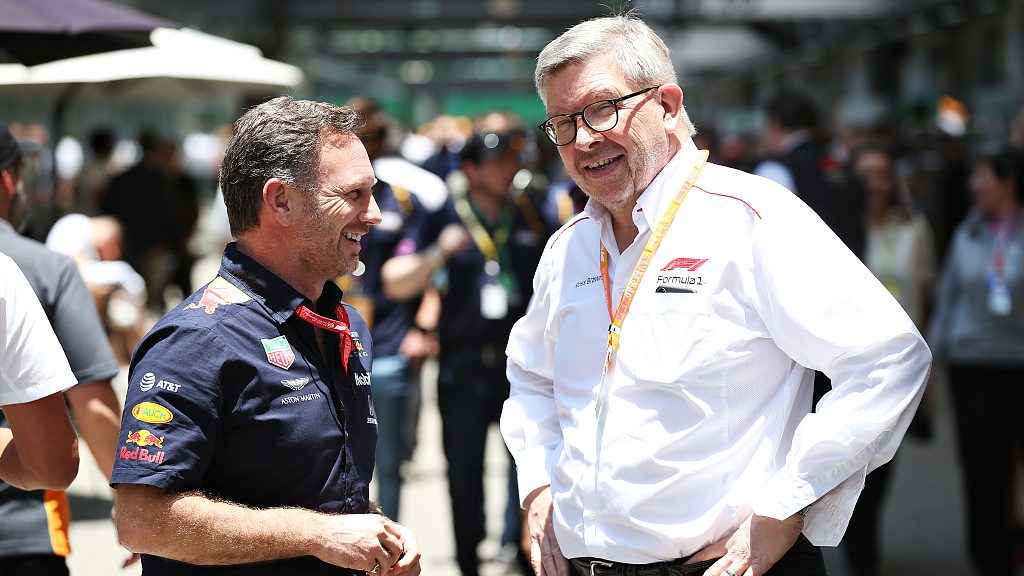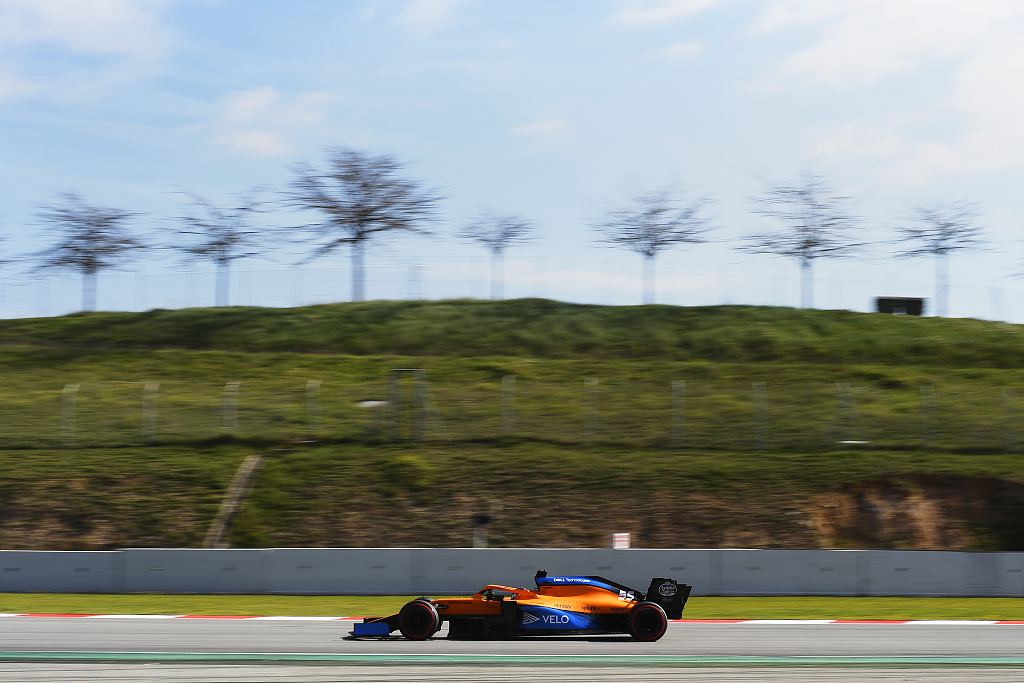
Managing Director of the Formula One Ross Brawn (R) talks with Red Bull Racing Team Principal Christian Horner before the Grand Prix of Brazil in Sao Paulo, November 17, 2019. /VCG
Managing Director of the Formula One Ross Brawn (R) talks with Red Bull Racing Team Principal Christian Horner before the Grand Prix of Brazil in Sao Paulo, November 17, 2019. /VCG
The managing director of Formula One Ross Brawn outlines the measures they are planning to start the season in Austria's circuit in early July after 10 rounds have so far been either cancelled or postponed due to the pandemic.
"Everybody will be tested and will have a clearance before they even go into the paddock, and then every two days they'll be tested whilst in the paddock and that will be with an authorized authority and consistent," he said.
The Briton said Formula One, working closely with the governing FIA, would use the same European facility for testing.
"We'll have restrictions on how people move around, We cannot socially distance a team, we cannot have staff socially-distanced," he said. "So we have to create an environment that, within itself is effectively a small bubble of isolation."
"And the teams will stay within their own groups. They won't mingle with other teams, and they'll stay at their own hotels."

Carlos Sainz of Spain drives the McLaren F1 Team MCL35 Renault on track during F1 Winter Testing in Barcelona, Spain, February 28, 2020. /VCG
Carlos Sainz of Spain drives the McLaren F1 Team MCL35 Renault on track during F1 Winter Testing in Barcelona, Spain, February 28, 2020. /VCG
Meanwhile, Brawn also said that Formula One had agreed to a budget cap of 145 million U.S. dollars for teams next year and will continue to try and tighten that for future seasons.
"It has become very clear, from talking to the management of the teams. The message is clear. We've got to cut costs and have a reduction of the cost cap ... If we lose some teams in this period it would be a tragedy," the 65-year-old Briton said, adding, "In the situation we have now the economic sustainability of Formula One is the priority and I think that counts as much for the big teams as it does for the small teams.”
The cap does not include drivers' salaries, with the likes of Grand Prix giants Mercedes, Red Bull and Ferrari each having an annual spend more than double the initial proposed cap of 175 million U.S. dollars.
A major rewrite of the technical regulations has been delayed to 2022, with teams carrying over this year's cars to 2021.
(With input from agencies)